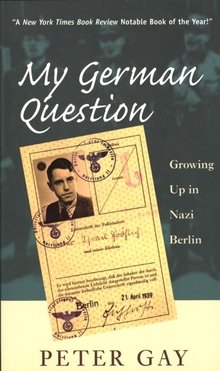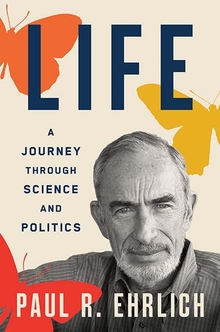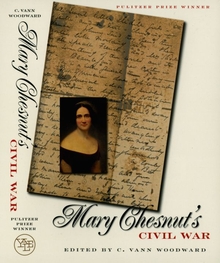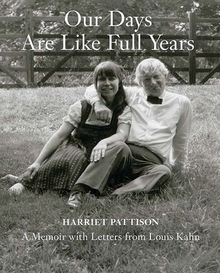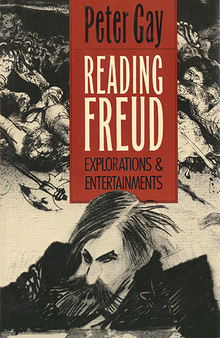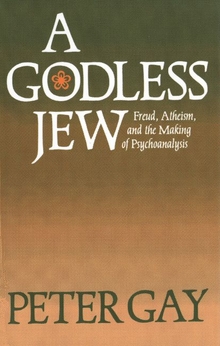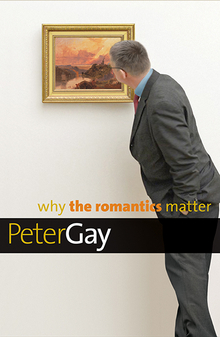My German Question
WARNING
You are viewing an older version of the Yalebooks website. Please visit out new website with more updated information and a better user experience: https://www.yalebooks.com
Growing Up in Nazi Berlin
Peter Gay
Gay relates that the early years of the Nazi regime were relatively benign for his family: as a schoolboy at the Goethe Gymnasium he experienced no ridicule or attacks, his father’s business prospered, and most of the family’s non-Jewish friends remained supportive. He devised survival strategies—stamp collecting, watching soccer, and the like—that served as screens to block out the increasingly oppressive world around him. Even before the events of 1938–39, culminating in Kristallnacht, the family was convinced that they must leave the country. Gay describes the bravery and ingenuity of his father in working out this difficult emigration process, the courage of the non-Jewish friends who helped his family during their last bitter months in Germany, and the family’s mounting panic as they witnessed the indifference of other countries to their plight and that of others like themselves. Gay’s account—marked by candor, modesty, and insight—adds an important and curiously neglected perspective to the history of German Jewry.
A selection of Readers’ Subscription
"Some refugees would not buy German cars or appliances, eat in German restaurants, sleep in German hotels, or even concede that the country had ever had a worthwhile culture. I remember my father’s Burkean comment—he had never read a word of Burke—that one cannot properly condemn a whole nation. It still rings in my ears. This was the attitude I would slowly, reluctantly, and never completely make my own."—Peter Gay, from the Introduction
“A searching, sensitive portrait of Gay’s youth, as crystalline as memory can be made.”—Gilbert Taylor, Booklist
“An intensely personal document . . . A moving testament to the agony the author experienced.”—Lucie Prinz, Chicago Tribune
"This engaging account conveys much insight from a historian who used Freud to illumine aspects of modern European culture. . . . [A] valuable chronicle of what life was like for those who lived through persecution and faced execution."—Choice
“[A] candid and unpretentious memoir, by one of American’s most distinguished cultural historians…[It] bequeaths is a challenge that extends beyond the frame of his personal story—as any important book should do.”—Lawrence Langer, Forward
“[A] candid and unpretentious memoir. . . . Gay’s volume . . . bequeaths us a challenge that extends beyond the frame of his personal story--as any important book should do.”—Lawrence Langer, Forward
“[A] readable, engaging book.”—Robert Fulford, Globe and Mail
"Peter Gay’s account of his boyhood in Nazi Germany is written with the sensitivity for hidden meanings and implications one would expect of him. . . . . It is becoming ever more difficult to recapture the dire atmosphere of the 1930s, and the analytical abstractions of present-day historiography are sometimes deficient in realism. Gay’s book provides a valuable antidote."—Edgar Feuchtwanger, Journal of Jewish Studies
“[A] thought-provoking, accessible memoir.”—Library Journal
"The author writes touchingly. . . . This thought-provoking, accessible memoir is recommended for most libraries."—Library Journal
“Not a single paragraph is superfluous. His inquiry rivets without let up, powered by its unremitting candor.”—Frederic Morton, Los Angeles Times Book Review
"An unusually interesting, candid book."—Susan Miron, Miami Herald
"An eloquent memoir."—Johan Ahr, Modern Judaism
“Gay’s story . . . makes for gripping reading.”—Alvin H. Rosenfeld, New Leader
“Not the least interesting part of [Gay’s] moving book, a book that he says is the “story of a poisoning and how I dealt with it,” is the account of his personal Vergangenheitsbewältigung—the process by which he came to terms with his own past.”—Gordon Craig, New York Review of Books
“[Gay’s] writing is smooth, a sound historian’s instrument…Gay’s story could hardly be other than interesting, and one is glad about the happy outcome of his family’s afflictions and his own feeling that his gift has been ‘an astonishing gift.’”—Frank Kermode, New York Times Book Review
“Gay’s story could hardly be other than interesting, and one is glad about the happy outcome of his family’s afflictions and his own feeling that his life has been ‘an astonishing gift.'”—Frank Kermode, New York Times Book Review
“A quietly remarkable character, civilized, learned, yet incapable of wholly forgetting or forgiving the hideous cruelties that threatened his life as a boy.”—Frank Kermode, New York Times Book Review
“A valuable book. It provides an eyewitness of what it was like to live in Berlin as the Nazis gathered themselves for the Holocaust. Gay also provides a fine portrait of how he left all things German behind, and through talent, luck and hard work, found opportunity and success as an American.”—Chauncey Mabe, News-Gazette
"This is not only a memoir, it’s also a fierce reply to those who criticized German-Jewish assimilation and the tardiness of many families in leaving Germany."—Publishers Weekly
“This is not only a memoir, it’s also a fierce reply to those who criticized German-Jewish assimilation and the tardiness of many families in leaving Germany. . . Gay . . .offers an explanation of the mixed signals and the difficulty of escape.”—Publishers Weekly
"My German Question is a fascinating book by a keen observer. Both disarmingly open and carefully guarded it reminds us that all history is lived history."—Doris L. Bergen, Review of Politics
“[This book] offer[s] some very insightful information about Gay’s own family, family dynamics, and the texture of Berlin Jewry. His comments about his father’s business, the family’s moves even in the midst of depression, as well as the rich tapestry of Berlin life help to bring many sections of the book alive. . . . Fascinating reading.”—Dean Phillip Bell, SHOFAR
"Gay, a distinguished American scholar, deals openly, passionately and insightfully with questions that preoccupy many refugees from Nazi Germany. . . . His book is stimulating, rewarding and, in spite of its theme, a joy to read."—Sylvia Rodgers, Sunday Times
"A subtle and fascinating book."—Caroline Moorehead, Times Literary Supplement
"An unforgettable account . . . It is a book by turns moving, angry, warm-hearted and humane—a triumphant story of survival in the face of the most barbaric intolerance."—David Cannadine, Times Literary Supplement
“Eloquent memoir of [Gay’s] Berlin youth in the 1930’s, his family’s escape and his ambivalence toward Germany and the Germans after 1945.”—Jeffrey Herf, Wall Street Journal
"[An] eloquent memoir. . . . [Gay] has made a significant contribution to rescuing German Jews from the cruel condescension of those whose willingness to pass judgment has exceeded their capacity for empathy and understanding of the dilemmas facing Hitler’s victims in the 1930s."—Jeffrey Herf, Wall Street Journal
“[An] honest and revealing book.”—Jonathan Yardley, Washington Post
“All will read [this book] profitably. This is, first of all, a straightforward historical account—by an eyewitness who brings to it the precision of historical scholarship acquired later in life—of what it was like to live as a Jewish boy in Berlin during that time.”—Peter Berger, Washington Times
"This is, first of all, a straightforward historical account—by an eyewitness who brings to it the precision of historical scholarship acquired later in life—of what it was like to live as a Jewish boy in Berlin during that time. . . . There can be no doubt about the honesty and thoughtfulness of his account. He has written a valuable and in parts deeply moving book."—Peter Berger, Washington Times
"Peter Gay’s My German Question asks what, in face of the new Germany, our generation can do with our old autobiographies. It is fascinating to accompany the scholarly mind on its journey through personal history."—Lore Segal, novelist and translator
“Peter Gay’s My German Question asks what, in the face of the new Germany, our generation can do with our old autobiographies. It is fascinating to accompany the scholarly mind on its journey through personal history.”—Lore Segal, author of Her First American
Publication Date: November 10, 1999
50 b/w illus.

